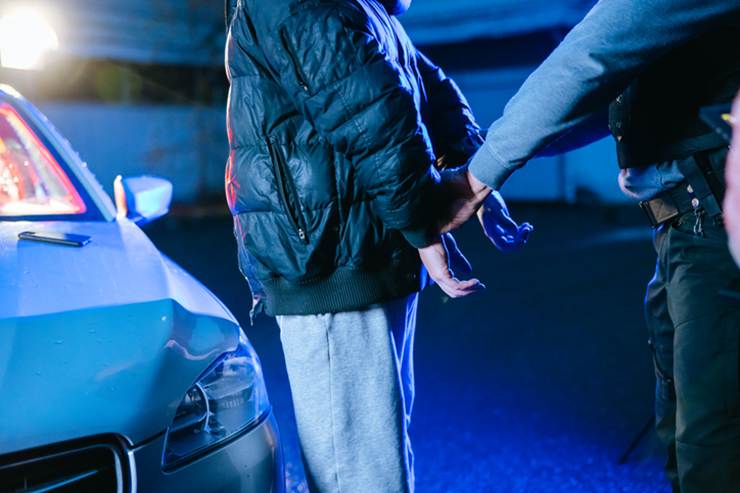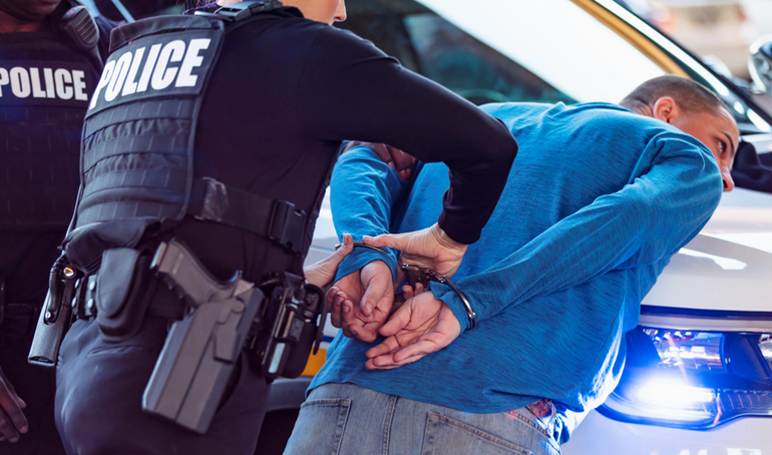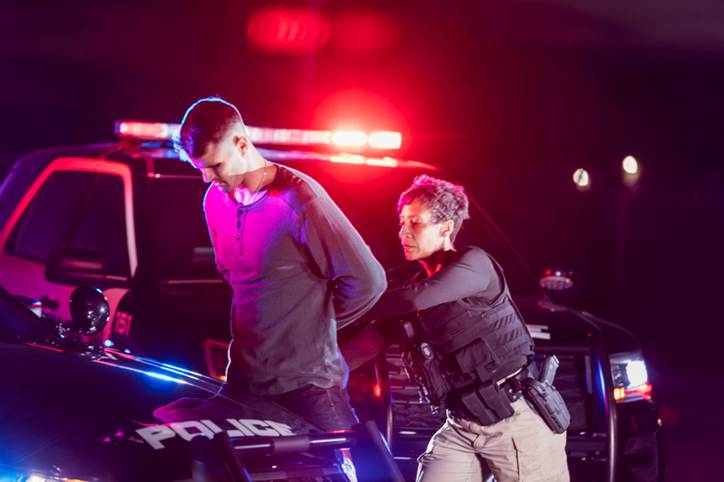
New York Illegal Search and Seizure Attorneys
That Search Didn’t Feel Right and It Might Not Have Been Legal
When police stop you, ask questions, and start looking through your things, it can feel like you don’t have a say. In the moment, it’s easy to feel frozen like you just have to go along with it. Later, that moment might come back to you in waves of confusion, fear, or even guilt. You start wondering, “Was that allowed?” or “Did I do something wrong?”
Here’s the truth: many searches that seem legal at the time don’t actually hold up under the law. You’re not overreacting if it felt off. You’re not wrong to question whether your rights were violated. Officers may speak with authority, use vague language, or suggest you have no choice, but if they didn’t have legal grounds, their actions could be challenged.
At Horn Wright, LLP, we represent people who’ve experienced illegal search and seizure across New York. Our civil rights attorneys understand how these encounters leave lasting emotional and legal damage. We’ve helped clients file civil lawsuits that hold law enforcement accountable.

What Actually Counts as an Illegal Search in New York
The Fourth Amendment and Article I, Section 12 of the New York Constitution guarantee protection from “unreasonable searches and seizures.” In real terms, that means law enforcement can’t just walk into your apartment, dig through your car, or grab your phone without a clear, legal reason.
A search becomes illegal when it happens without:
- A valid warrant
- Your voluntary, informed consent
- An immediate emergency that truly prevents getting a warrant
This protection applies to:
- Your home or apartment
- Your car or motorcycle
- Your backpack or purse
- Your phone, tablet, or computer
- Your body (frisks or pat-downs)
- Public spaces, like sidewalks or schools
Illegal searches can happen in quiet moments, during routine stops, hallway conversations, or casual requests. And even if no arrest follows, your rights may still have been violated.
When Police Search Without a Warrant and Why That’s a Problem
Warrants are legal documents signed by a judge after an officer shows “probable cause.” They must be specific. They must identify:
- The location to be searched
- The items being looked for
- The time and manner the search will occur
When police skip this step or show up with a vague or open-ended warrant they’re acting outside the boundaries of the law. Warrantless searches are only allowed in very narrow, specific exceptions, and even then, they’re subject to strict scrutiny.
A warrant protects your privacy. When police bypass that, they undermine the basic structure of fair investigation. And that gives you the legal power to push back.
Search Warrants Have Strict Limits: What Cops Can and Can’t Do
Even with a warrant in hand, there are rules. Police can’t search just anywhere or take whatever they want. If the warrant says “garage,” they can’t look in your bedroom. If it says “firearms,” they can’t go through your kitchen drawers.
Officers must also:
- Execute the search within a specific timeframe
- Knock and announce themselves unless granted an exception
- Keep a written record of what they seize
- Avoid destroying property or causing unnecessary harm
Any deviation from those rules could render the search, or what they found, invalid. And that can give your attorney grounds to suppress evidence and question the entire investigation.
Warrantless Searches and the “Exceptions” Police Rely On
Sometimes police are allowed to search without a warrant, but these exceptions are abused all the time. Officers often stretch or bend the rules to justify unconstitutional searches after the fact.
The most common exceptions include:
- Exigent circumstances: genuine emergencies like active threats or danger to life
- Consent: voluntary, informed agreement to allow the search
- Plain view: if something illegal is clearly visible
- Automobile exception during lawful traffic stops with probable cause
But vague claims like “the person looked suspicious” or “we didn’t have time to get a warrant” don’t always hold up. Courts in New York are strict about these standards, and that can work in your favor.
Consent Searches: Why Saying “Yes” Doesn’t Always Count
At first glance, a consent search might seem straightforward. If you agreed, then it must be legal right? Not necessarily. In many unlawful search cases, the central issue isn’t whether you said “yes,” but how, when, and under what conditions that yes was given.
Consent in the eyes of the law must meet a higher standard than just compliance in the moment. It has to be freely and clearly given, without fear, confusion, or pressure. And in practice, that bar is often not met.
Police are trained to use psychological pressure and vague language to obtain consent without ever making it feel optional. They may say things like “Let’s just take a quick look,” or “You don’t mind if I check, do you?” These questions aren’t neutral. They’re designed to box you in and create the illusion that cooperation is expected. And when that happens, courts often find that the “consent” wasn’t truly voluntary.
Consent must be:
- Clearly given — not mumbled, unsure, or given while intimidated
- Not forced or pressured — meaning you felt free to refuse
- Based on knowledge — you must understand that you have the right to say no
If officers surrounded you, kept their hands near their weapons, blocked your exit, or implied that refusing would get you in trouble, that’s not consent, that’s coercion. And the courts know it.
It's also important to understand that consent is not permanent. You can withdraw it at any time, even mid-search. If you initially agreed to let an officer look in your car but then changed your mind, they are legally obligated to stop.
This becomes especially important in cases where the search leads to criminal charges. The entire case can hinge on whether the officer had the right to be searching in the first place, and if the consent was flawed, the rest of the case may fall apart.

What Happens to Evidence From an Illegal Search
If a court rules the search was illegal, any evidence collected as a result may be excluded. This is known as a “motion to suppress.”
The exclusionary rule, and its extension, the “fruit of the poisonous tree” doctrine, means:
- Illegally obtained evidence can’t be used in court
- Evidence that stems from that illegal search may also be excluded
When key evidence disappears, so does the prosecution’s case. Suppression motions often result in dropped or reduced charges, especially in drug or weapons cases.
Illegal Searches During Traffic Stops
Traffic stops are one of the most common situations where illegal searches take place. What begins as a routine stop for something minor, e.g., a broken taillight, rolling through a stop sign, or forgetting to signal, can quickly escalate into aggressive questioning, requests to search your vehicle, or even a full-blown search of your trunk, glove box, or bags. And in far too many cases, this happens without a warrant, without your consent, and without any legal justification.
Officers often rely on vague or subjective claims to justify these searches. They might say:
- You “looked nervous”
- They “smelled marijuana”
- You were “acting suspiciously”
- You hesitated to answer questions
- You were driving in a “high crime” area
You always have the right to say no when an officer asks to search your car. If they continued anyway or if they searched without even asking, and there was no valid legal reason, that may have been an illegal search.
If this happened to you, it could be a violation of your rights. An experienced attorney can evaluate the entire stop: the reason you were pulled over, the officer’s actions, whether consent was actually given, and how far the search went.
Searches of Cell Phones and Digital Devices
Phones, laptops, tablets: these are extensions of our private lives. They hold everything from messages and photos to financial records, medical info, and location history. Police know this, which is why they’re eager to access them. But courts treat digital devices as highly protected under the Fourth Amendment.
Police must have:
- A specific warrant
- Defined data they're searching for
- A narrow time window for the data
They can’t scroll endlessly through photos or read every message just because your phone was on you. If they did, your case may be open to challenge.
Even during an arrest, officers don’t automatically gain the right to go through your phone. Unless you give clear, voluntary consent or they have a properly issued warrant, searching your device may be a violation. And if that illegal access led to charges or further investigation, your attorney may be able to suppress the evidence and weaken the prosecution’s case entirely.
Illegal Searches in Rental Units and Apartments
Tenants have the same rights as homeowners when it comes to illegal searches of homes. Your apartment is your private space. Landlords or supers cannot waive those rights on your behalf.
Police need:
- A warrant
- Your valid consent
- A real emergency
If they entered based on building management’s permission or no permission at all you may have strong grounds for suppression or a civil lawsuit.
Illegal Searches at Schools and Against Minors
Students in school don’t lose all their rights. While it’s true that school officials have a bit more leeway than police when it comes to searches, they are still bound by the Constitution. School staff can search students with “reasonable suspicion” rather than full probable cause, but even then, their authority has clear limits, and those limits are often ignored or misunderstood.
Unreasonable school searches may include:
- Searching a phone without cause
- Strip-searching a student
- Targeting a student based on rumor, race, or appearance
- Searching a locker without reasonable justification
- Publicly shaming or isolating a student during the search
These actions can be traumatizing. If your child was searched without a solid, specific reason, especially in a degrading or aggressive way, your family deserves legal support and answers.
Beyond the emotional toll, illegal search and seizure of students and minors can lead to unfair disciplinary action, damaged reputations, or even criminal charges based on improperly obtained evidence.

Pat-Downs and Frisking: When “Routine” Is Really Unlawful
Not every stop justifies a frisk. Police must reasonably suspect you’re armed or dangerous, not just that you’re standing on a corner, wearing a hoodie, or “acting nervous.”
If you were frisked without any cause, and especially if it was public, invasive, or aggressive, you may be able to bring a claim for unlawful search and seizure.
These incidents are often traumatizing, particularly for Black and brown New Yorkers who are disproportionately targeted.
How to Prove a Search Was Illegal
Proving a search was illegal starts with the facts. Your attorney will help gather:
- Bodycam or dashcam footage
- Eyewitness testimony
- Surveillance video from nearby homes or businesses
- GPS data or timestamps
- Dispatch logs and officer reports
The goal is to show inconsistency between what happened and what the law allows. Strong documentation often makes the difference.
What You Can Recover After Illegal Search and Seizure: Damages and Remedies
If your rights were violated, you may be entitled to compensation. This isn't just about the evidence being thrown out. It's about what happened to you.
You may be able to recover for:
- Emotional distress
- Lost wages
- Damage to reputation
- Property loss
- Attorney’s fees
- Punitive damages (if the behavior was reckless or malicious)
In some cases, courts can also order the agency to make changes like improved training or oversight. These compensation and remedies claims matter not only for individuals but for systemic change.
Employer and Private Security Illegal Searches and Seizures
Security guards and employers don’t get a free pass. They can’t search your bag, phone, or person just because they suspect something or because “that’s policy.” Private individuals and corporations are not above the law, and they must respect your rights, even in the workplace or on private property.
Employers may search company-owned property such as lockers, desks, or emails sent on company servers. But when it comes to your personal items, like a purse, backpack, smartphone, or wallet, they typically need your clear, voluntary consent or a legally valid reason.
If you were searched in a store, at work, or by private security without cause, your rights still matter. These workplace and employer searches can be humiliating and invasive, and they may also constitute false imprisonment, invasion of privacy, or unlawful detainment.
Drug Charges and Illegal Search Strategy
Many drug arrests stem from searches that never should have happened. Maybe an officer stopped you for a broken tail light, then asked to search your trunk. Maybe they came to your apartment and started looking through drawers without a warrant.
If the search wasn’t legal, the evidence may be thrown out. And if the evidence disappears, so does the case.
Defense attorneys will examine:
- Whether there was probable cause
- If consent was freely given
- If the search extended beyond what’s allowed
- Whether anything was seized improperly
This strategy is often the first (and best) line of defense in a drug case. Lawyers focus on both drug cases and illegal searches to suppress evidence and protect clients’ rights.

Searches at Protests and Public Events
Your right to protest is protected. But at rallies, marches, and demonstrations, officers sometimes overstep.
You may have been illegally searched if:
- Police took your phone without permission
- Your bag was searched without any suspicion
- You were singled out based on appearance or speech
Illegal searches during protests and public events often have the advantage of video footage, livestreams, etc., when pursuing claims through a lawsuit.
Civil Lawsuits After an Illegal Search
A civil lawsuit allows you to hold police, agencies, and municipalities accountable. These suits aren’t just about compensation, they create a public record, push for policy change, and give victims a path toward closure.
You can sue for:
- Fourth Amendment violations
- False arrest
- Emotional trauma
- Loss of liberty
- Retaliation or harassment
Some cases also lead to settlements and verdicts that include court-ordered reforms requiring training, oversight, or policy changes.
Your attorney will help you gather evidence, build a timeline, and connect the illegal search to the harm you experienced. These cases can be powerful tools for justice especially when they’re combined with community pressure and media attention.
Statute of Limitations and Deadlines You Can’t Miss
If you’re thinking about filing a claim, don’t wait. Civil rights claims have strict deadlines in New York:
- 90 days to file a Notice of Claim against a public agency
- 1 year and 90 days to sue a municipality
- 3 years for most other civil rights claims
Minors or people with disabilities may have extra time, but it’s always best to act quickly. Missing the statute of limitations could cost you your case.
Horn Wright, LLP, Represents Victims of Illegal Search and Seizure in New York
Horn Wright, LLP, helps people across New York who’ve experienced illegal searches and seizures, in homes, cars, schools, protests, and workplaces. We bring together deep civil rights knowledge, real courtroom experience, and a commitment to our clients’ dignity and future. We know how invasive and traumatic an illegal search can be.
We’re here to challenge the system, suppress the evidence, and hold wrongdoers accountable. If your rights were violated, we’ll stand by your side from start to finish.
Contact our offices today for a FREE consultation.

What Sets Us Apart From The Rest?
Horn Wright, LLP is here to help you get the results you need with a team you can trust.
-
Client-Focused ApproachWe’re a client-centered, results-oriented firm. When you work with us, you can have confidence we’ll put your best interests at the forefront of your case – it’s that simple.
-
Creative & Innovative Solutions
No two cases are the same, and neither are their solutions. Our attorneys provide creative points of view to yield exemplary results.
-
Experienced Attorneys
We have a team of trusted and respected attorneys to ensure your case is matched with the best attorney possible.
-
Driven By Justice
The core of our legal practice is our commitment to obtaining justice for those who have been wronged and need a powerful voice.

